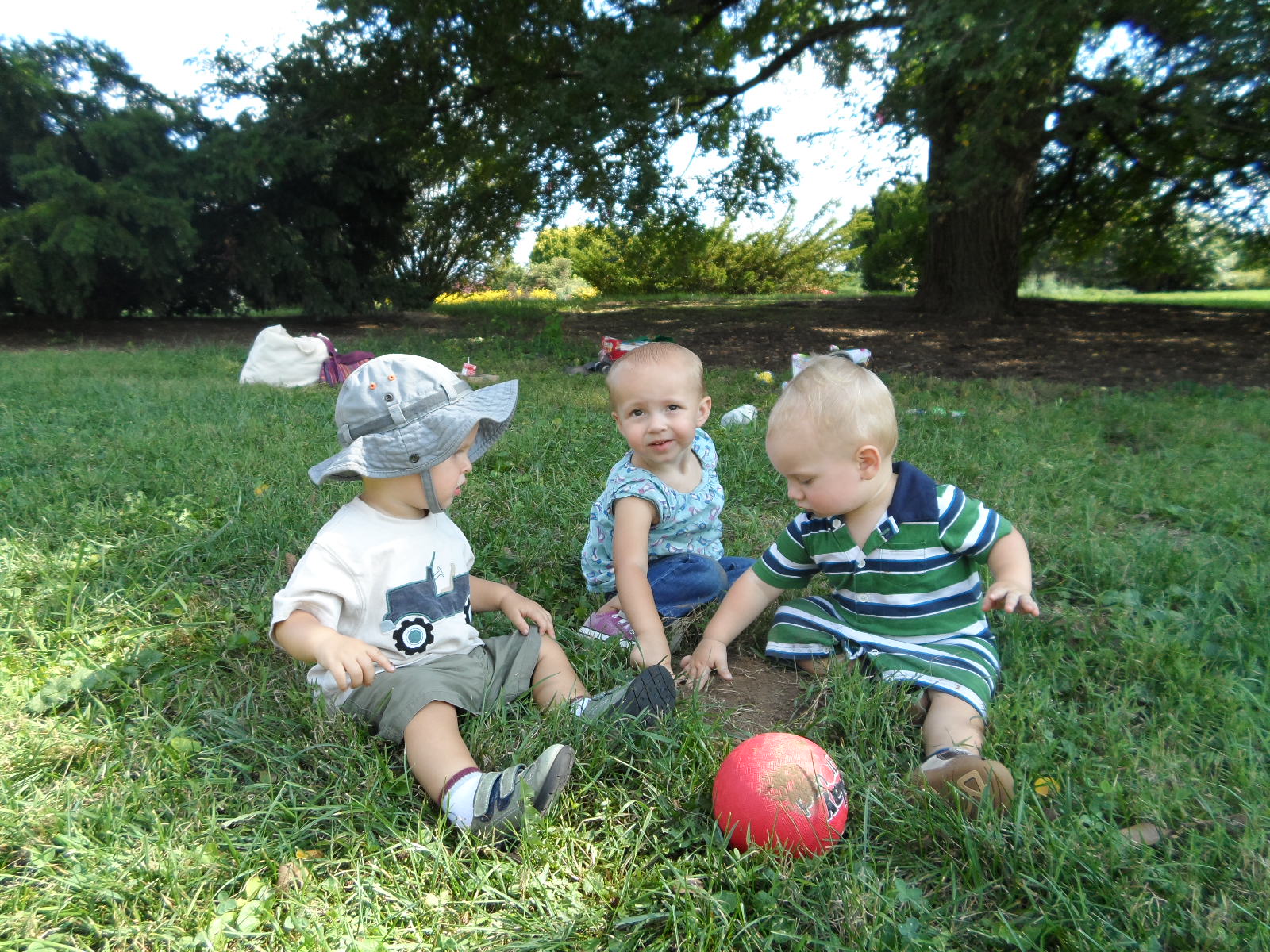Attachment Parenting Families Find Support, Advice in Local Group
Mothers and fathers know parenting is a daily challenge- and having others question or criticize your methods doesn’t make it any easier.
Attachment parenting is a method that often involves co-sleeping, breastfeeding past infancy and gentle discipline. In a world of “Baby-Wise” and a region with a conservative culture, three Lexington moms have created a space where parents can come to feel supported in their decision to practice attachment parenting.

Jennifer Haydon, mother to 17-month-old Alex; Julia Allen, mother to 21-month-old Piper; and Laura Clark, mother to 21-month-old Carter, attended La Leche League meetings together. They found a common bond in that they all practice attachment parenting and felt a certain judgment from people in their lives.
“People look down on attachment parenting and sometimes you could feel ashamed about it, especially in this region because it’s so conservative,” Julia said. “It’s very different from the way a lot of people were raised, it can be hard to explain.”
Most of the women didn’t set out to specifically use AP. They just parented in the way that felt natural to them and later learned there was actually a name for it.
“ I was reading parenting books and thinking ‘I’m going to have to remember what this book said.’ And then later I remember thinking ‘None of this is hard because it feels the most natural and loving thing to do,’” Jennifer said. “Natural mothering instincts are so supported in this type of parenting.”
Laura spent her first few months of motherhood reading parenting books in her rocking chair once she realized her instincts to co-sleep and to breastfeed weren’t popular with people she knew. What appealed to her was that AP follows the science of child development.
“Neuroscientists back up what I feel,” she said. “People tell you to let a baby cry it out. But infants cannot self-soothe, their brain is not developed for that yet. Once I got into the science behind it, I felt not only is my heart telling me this is right, science is backing this up. Even if I can’t change someone’s mind on it, at least I felt more confident in my choices.”
Responding to children with empathy is a key component of AP. Parents provide physical contact likes hugs and cuddles, use positive discipline to correct behavior, and AP does not support spanking or hitting as discipline. Julia said trying to navigate discipline issues among family can be a major struggle.
“Positive and gentle discipline, it’s very different from the way a lot of people were raised,” she said. “When you have extended family, everyone wants a role in your child’s life, but many of those people didn’t parent the way you want to parent.”
The group the women host is a place to air those troubles, to connect with parents facing the same issues and offer advice and support. The women are currently working toward certification from AP International, but until then the group meets as an unofficial support group.
Any parent who practices AP or is interested to learn about the parenting style is welcome to attend. Julia encourages parents to come discuss their experiences with AP even if they don’t think they fit with every tenet of the style.
“Maybe you didn’t breastfeed but you still want to co-sleep or practice gentle discipline,” she said. “It’s not about never saying no and doing everything a certain way. It’s about finding a balance. AP Isn’t perfect, but it feels right to me.”
For more information on Attachment Parenting the group recommends visiting www.attachmentparenting.org or reading “Attached at the Heart” by Barbara Nicholson and Lysa Parker.
- 8 Principles of Attachment Parenting (from the AP International website)
- Prepare for Pregnancy, Birth, and Parenting
- Feed with Love and Respect
- Respond with Sensitivity
- Use Nurturing Touch
- Ensure Safe Sleep, Physically and Emotionally
- Provide Consistent and Loving Care
- Practice Positive Discipline
- Strive for Balance in Personal and Family Life

